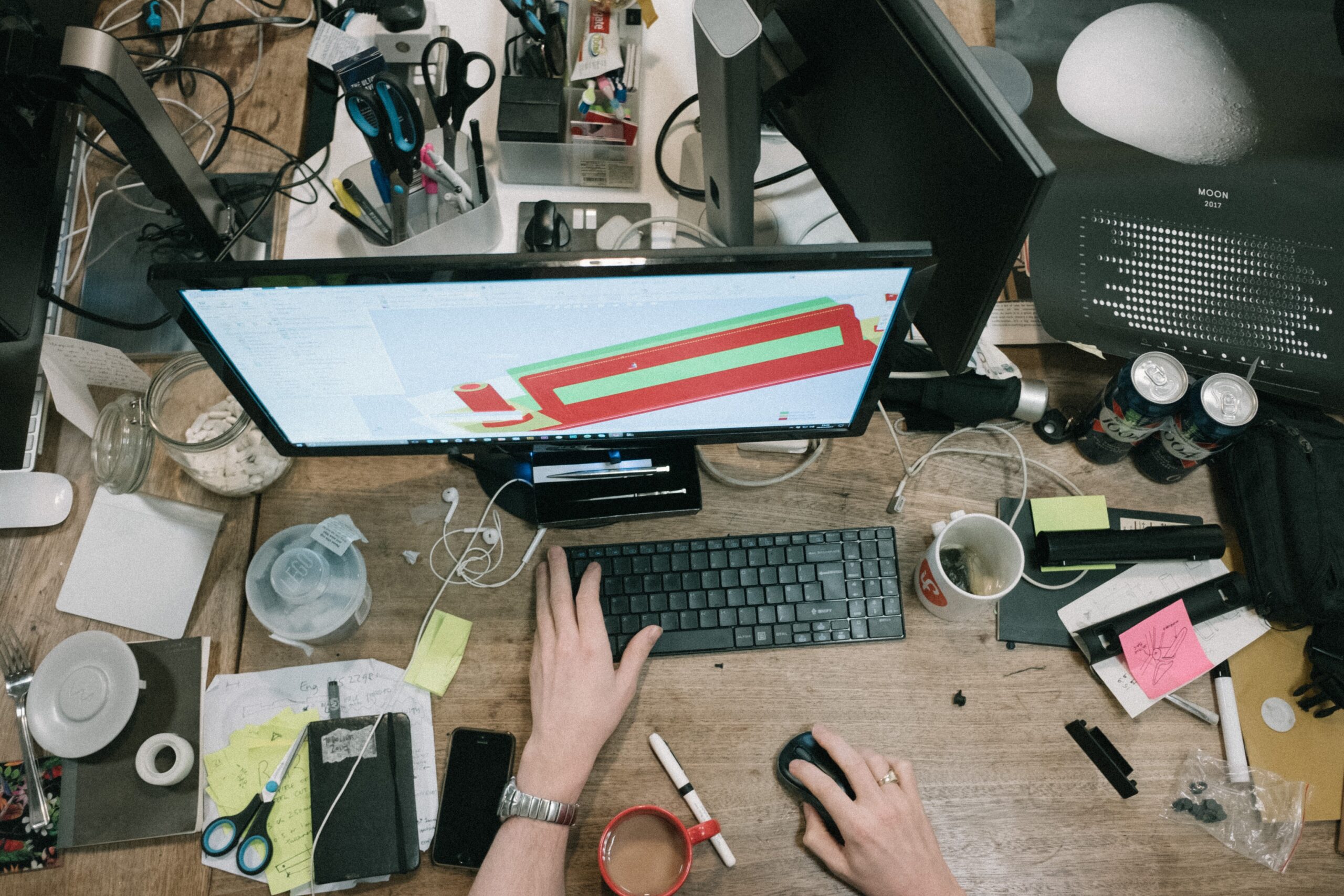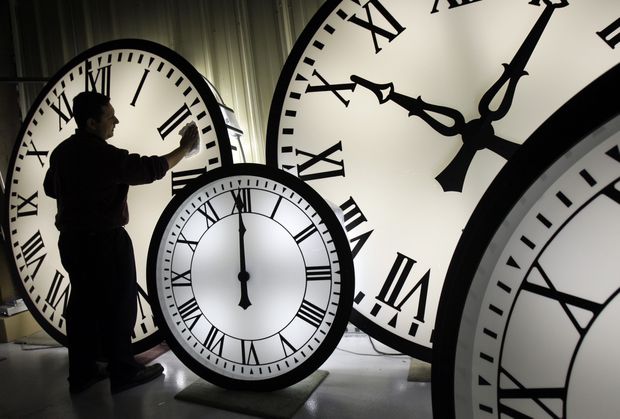
Wait, stop. You’re saying that being busy is a bad thing? Well, it depends on what ‘busy’ means to you.
If it means juggling seven different tasks simultaneously and feeling like one of those stretchy dolls being tugged in every direction, then yes. It’s a bad thing.
Business shouldn’t mean ‘busy-ness’

We’ve lived in a culture for so long where being successful is working yourself into the ground day in day out. After all, many people refer to work as ‘the daily grind’. Research by Silvia Bellezza found that people see those who are busy as successful. When in reality, the opposite might be true.
But being busy doesn’t mean you are effective. It doesn’t mean you are achieving. We’ve discovered more recently, with flexible working and the introduction of a four-day week (for some), that less is more. When people work for less time, they are more focused, and often, they get more done.
I’m definitely one of those people who is constantly switched on to work. I’m ALWAYS thinking about achieving. But this bites me in the arse quite a lot because I end up trying to achieve too many goals at once. Then I crash and burn. Let me give you an example from my life where I’m trying to achieve too much all at once. And by doing less, I could end up potentially doing more.
Trying to achieve 378534 business goals at once is making me ‘busy’
So currently, I run a Copywriting Company (called The Content Wolves). This is my main priority, but I also have a few other things in the pipeline. I’m putting together a training course. I am writing children’s books. And I’m also trying to grow my online well-being and mental health magazine. Being busy often results in people doing lots of different jobs all at once. It’s just not possible. Instead, try and nail one thing, then move on to the next. When I have dedicated time for each task, I feel much more grounded and a lot less hectic.
It’s time to make efficient the new busy

We shouldn’t celebrate being busy in quite the same way. We should celebrate focus, organization and smart use of our time. Success isn’t pushing yourself to the point where you’re close to having a mental breakdown. If we can do more quality stuff in less time, then let’s celebrate a cool, calm, collected approach to achieving our goals.
“Never mistake activity for achievement.” John Wooden
Busy doesn’t mean you are making money effectively. You could be filling your days with work but not making a huge profit, because you’ve lost focus. So whatever you’re doing, stop. Pause and consider if there’s a better way of doing things. Who wants to be in a rat race anymore? Certainly not me. That’s part of the beauty of being freelance. You control your schedule and decide how much of your life you want to give up for work.
There should be an element of this in the office too. People who manage their time well should be celebrated more than those who work 10-hour days and juggle a million things.
Busy doesn’t mean happy
Another reason to not celebrate being busy is that a lot of ‘busy’ and seemingly successful people are miserable. We shouldn’t be proud of using up all our valuable time. We should be proud of being able to achieve a proper work-life balance so that we can actually have the freedom to do other things that help us feel content. Like spending time with loved ones, indulging in some essential self-care or enjoying a hobby.
Being busy can lead to burnout

It’s why many people are stressed at work. High expectations of what can be achieved in a single day by one person is causing anxiety and mental health issues. Science shows that doing too many things can make us less efficient and, according to research, cause us to make more mistakes. What happens when we make mistakes? We get stressed and beat ourselves up about it.
Doing too much makes our brains hurt
Yes, really. Juggling too many different tasks isn’t great for that poor overworked brain of yours. In fact, doing numerous things at the same time can have a negative impact on your cognitive ability.
I’ve definitely had times when I’ve been working, and my brain is literally hurting because I’m trying to do too much. If that’s happening, listen to your mind and your body and slow down. It’s a warning sign you’re putting yourself under too much pressure.
It’s also common knowledge that stress is bad. Obviously. And being overworked and too busy could have negative impacts on our health, putting us more at risk for certain health conditions.
The approach needs to change
Have you ever worked in a job where you can never actually sit down and do what you set out to do? The chances are, you have. Constant unnecessary meetings, phone calls, new projects and distractions from colleagues asking things from you. Because businesses have gotten used to creating a hectic environment.
Like worker bees, bosses are at ease when there is a constant hum of activity and a hectic atmosphere. Because it feels like things are getting done, even if they are not, or perhaps not as well as they’d want. Sure, there are exceptions to the rule. Managers who get it. Who know how to get the best out of their staff by giving them freedom and not overloading them. But this needs to become the rule, not the exception.
When you slow down, there’s more freedom for creativity

We hardly ever get our best ideas when we’re maxed out and running around like a headless chicken. When do your best ideas appear in your head? When you’ve got time to slow down and have the space to think clearly without a million distractions.
I’m a massively creative person. It’s what makes me tick. If I’m solely doing hectic tasks where I need to get stuff down, I feel like I’m being backed into a corner. Having creative moments is hugely important if we want to keep innovating instead of just getting the job done and hitting insane targets.
Judging work colleagues, businesspeople and your employees by how busy they appear is not useful. I’ve worked in agencies where they literally time every task you do and how many hours you do each day, and it’s gruelling. Research has shown this approach doesn’t get people to achieve more; it often leads to a reduction in productivity and creativity.
Time poverty

Social scientists have described a lack of time to do things as ‘time poverty’. I love this concept. Think to yourself, what’s the most valuable thing in life? Time! Time gives us precious moments with our family, and it gives us the opportunity to learn and grow and spend more seconds doing the things that make us tick.
If you’re busy, then you’re stuck in a time-poverty black hole. You may feel like you are doing tons of stuff, ergo you are using your time well. But when you sit down and look at what you’re achieving – is this actually true? You might be surprised at the results.
Small things you can do right now to reduce your busy-ness
- Set a time limit for each task and stick to it
- Write down your goals in priority order
- Don’t work on too many things at once
- Set aside time for creative moments
- Plan your day ahead of time and ensure you are being realistic
- Try working with a life coach to plan your goals – this worked wonders for me
- Keep reminding yourself that being super busy isn’t super productive
Final thoughts
I’ve touched on what work stress can do and how you know when you’re job is getting toxic before. It’s clear that an in-built way of thinking centred around being busy equating to success is becoming outdated. People are recognising it, but like with most of these kinds of issues, real change takes time.
Business owners and brands need to take a step back and consider how processes can be enhanced to get the best out of people without leading to burnout. We all need to work together to change perceptions and agree that a busy schedule can hold us back rather than push us to succeed.
I’ve collected some opinions on this subject from LinkedIn posts I’ve come across, and I think you’ll agree some of them are spot on.
“If you want high-performing people to stay, ask them to do high-value outcome work as opposed to low-value process work.” Mark Robinson
“As someone who approaches work with a problem-solving, process improvement mindset, I frequently see frazzled colleagues seen as high performers with demanding workloads.” Emily McManamy
“In my experience, a culture of extreme busyness at work also keeps everyone stuck in the “urgent and important” and “urgent and unimportant” areas of the Eisenhower Matrix (yes I had to look that name up!)— it makes it hard for employees to justify making time for the “non-urgent and important” things like strategic planning.” Emily McDowell
“I have found that being busy all the time with meetings and then using every free moment to watch or listen to something on ear buds doesn’t leave time for my own thoughts, my own voice. When I slow down, creativity flourishes.” Susan Treacy
“I’ve always believed there is a profound difference between being busy and being productive. I have combated this is by setting my daily intentions and goals, leveraging my calendar to set aside dedicated time for projects, and by having a solid accountability partner.” Eileen Dabrowski
“I find myself falling into the “busyness” trap all the time. Activity is not a metric for success. Protecting “think time” and focusing on outcomes sounds easy — it’s not!” Kevin Hakimzadeh
“Ironically, my daily commute was one of the things I missed the most when I started working remotely. Daily drive time presented rare moments of quiet where I could think about my day, what went well, and what I’d like to do better. Since then I’ve tried to build in “fake commutes” throughout the week (aka walks around the block) where I let my mind rest, recharge and wander for a bit.” Landon Cowan
